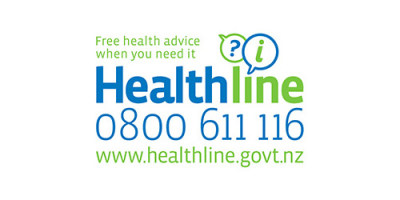Dr Elizabeth Wood: Stay connected and informed while managing flu and cold at home
Dr. Elizabeth Wood, Chair Clinical Governance Group, on the importance of staying connected and informed whilst at home managing winter illnesses:
This winter will be challenging for our health and disability system and for all of us: there's likely to be a long tail of COVID-19 cases and with the border re-opening there are increasing flu outbreaks. Every winter, there is an increase in many other respiratory infections, such as respiratory syncytial virus (RSV).
"These events together will significantly increase the demand for health care services. Understanding the level of care you and your family needs and when to get extra care can help health services work efficiently for all."
For most winter illnesses, like cold and flu, health information from online tools like Health Navigator, or using the 24/7 phone lines like HealthLine, is the right thing to do in the first instance. These services can help you decide when an illness requires more care.
COVID, flu, or cold?
In the case of common winter illness symptoms, such as fever, cough, tiredness, or sore throat, the first step is to stay home and take a RAT test to determine if COVD-19 is causing the symptoms. To find out more about testing, visit Healthpoint to find a centre near you.
If the test is negative for COVID-19 and symptoms continue, retest after 48 hours. However, if you are particularly at risk if you get COVID and may qualify for antivirals or it is important for your work to test again 24 hours after a negative test. Even when RAT tests are negative it is really important to keep away from other people to try and stop all viruses from spreading.
1. General public
Get a RAT test if you have symptoms and regardless of the result stay at home until 48 hours after you feel better. If 1st RAT is negative, wait 48 hours and repeat the test.
2. Vulnerable person
If 1st RAT is negative, wait 24 hours and repeat the test. This smaller timeframe will get help the person more at risk as soon as possible, some may need antiviral medicines. . Entering your positive RAT test result into the system is important as it activates appropriate care and attention from your local health care team. Stay at home until 48 hours after feeling better.
3. Critical workers
Should follow advice from the Ministry of Health on RAT tests. If the RAT is negative, wait 24 hours and repeat the test.
If a second RAT test is negative but symptoms persist, most likely you have an infection like a cold or flu that is not COVID. Most respiratory illnesses. although uncomfortable can be managed at home.
Remember, a negative RAT is not an excuse to share symptoms, even if it isn’t COVID-19. Staying home to rest will help you get better faster and will keep others from getting sick.
Self-care resources for flu and cold:
Health Navigator is a good place to start to learn about what symptoms can be managed at home and what requires medical attention. Information on Health Navigator is trustworthy and reliable: the information is reviewed by New Zealand-based health professionals (doctors, nurses, specialists) who are experts in their field.
- If you’re unsure about whether you should see a doctor, call Healthline on 0800 611 116 for free health advice 24/7 from registered nurses.
- If you are calling about a baby or child, PlunketLine is a free parent helpline and advice service available to all families, whānau and caregivers 24 hours a day, seven days a week. Call 0800 933 922.
A local pharmacy can offer advice and help in putting together a kit of over-the-counter medicines and products to have on hand if you do become unwell. This kit could include:
- Paracetamol or ibuprofen to reduce fever, headache and body aches
- Lozenges to soothe a sore throat
- Electrolyte rehydration solution or salts for vomiting or diarrhoea
- Tissues
- Hand sanitiser
- A thermometer to help monitor fevers
Socially distance, don’t socially isolate
For your own best outcome and the protection of others, take the time at home to self-isolate and allow your body a chance to fight off the infection. Stay home, and if you live alone, or if you are a young person who has recently left home, let someone know you are not feeling well, so they can keep checking back with you. Keep in touch with your family, friends, or neighbours to ensure that someone is checking in on how you are doing and to see if you need anything. Connection is important all the time, but especially when we’re unwell and need support.
- If you are feeling down, anxious, or just like you need to talk to someone during isolation (or at any other time) free call or text 1737. They offer brief one-to-one counselling to provide support to those contending with depression, relationship issues, loneliness, and more. You can talk to a counsellor, or you have the option of talking to someone with lived experience of wairangi/mental distress who is trained to provide tautoko/support.
- 1737 is also available to carers, families, and friends of someone struggling with mental distress. 1737 can talk through your role as a support person and provide you with support, too.
Advice for colds and flu:
- Don’t rush back to intense exercise, but gentle exercise such as a walk is OK and will help keep your spirits up.
- After a viral infection it is common to have an irritating cough that persists for several weeks – this is not a reason to stay at home and typically does not require a GP visit.
For more information about the difference between COVID, the flu, and colds, as well as self-care tips, visit: a cold or the flu? | Health Navigator NZ.
Reasons to seek help:
- Being unwell for 3-4 days and getting worse
- Increasing shortness of breath
- Chest pain or severe headache
- Cough with large amounts of coloured or blood-stained phlegm/ sputum/ spit
- Unable to drink / not passing urine / persistent vomiting
- Increased confusion
- Skin rash that does not disappear when pressed on
- Babies taking less than half their usual feeds





